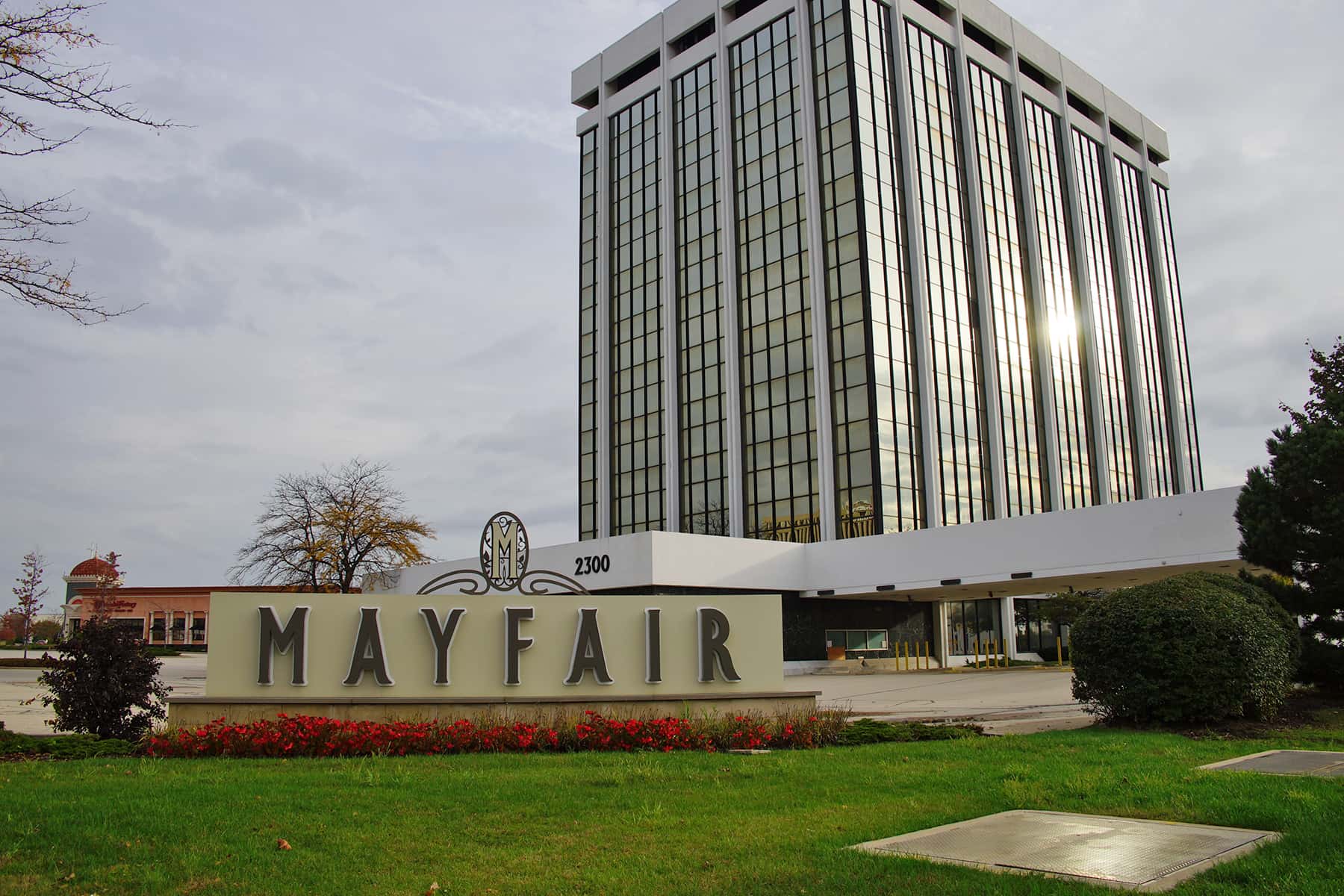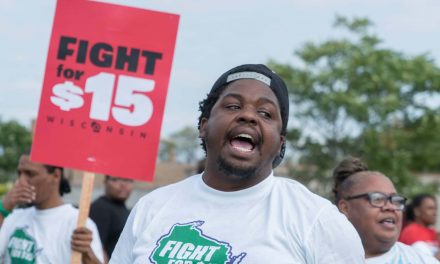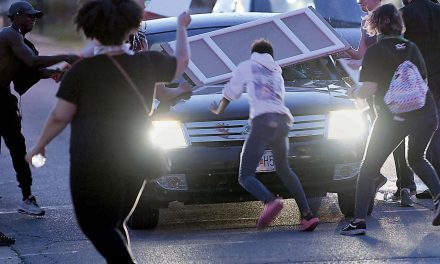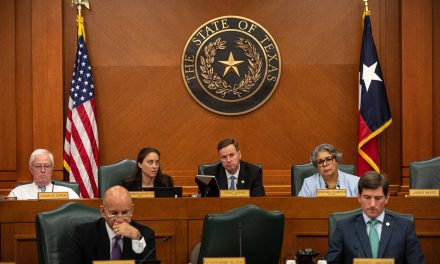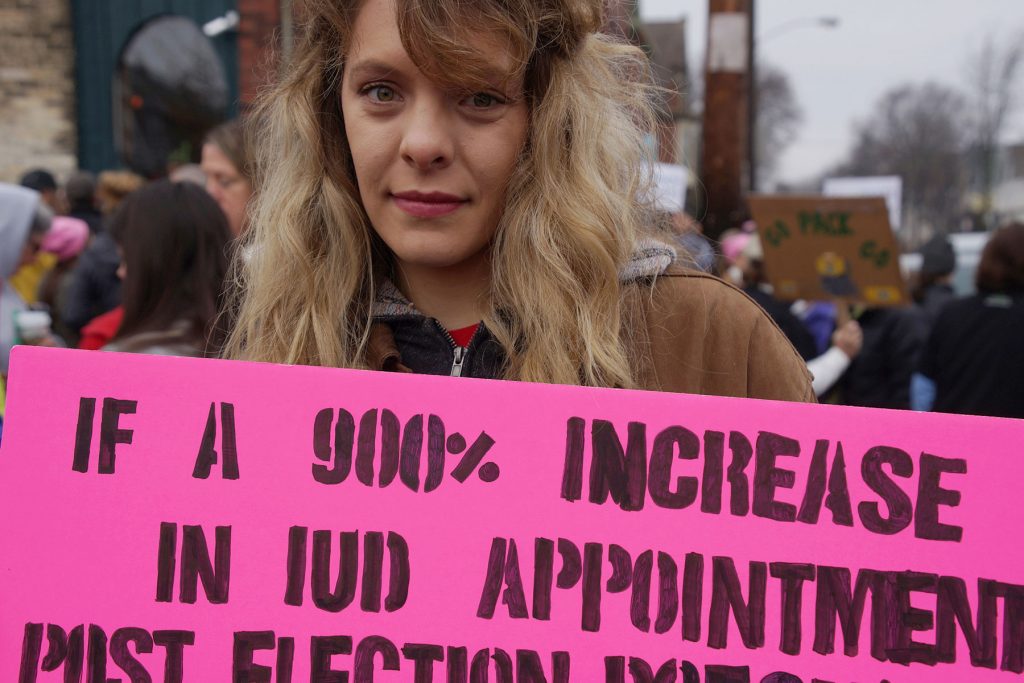
Five Wauwatosa Police officers with important information about the scene of the 2016 police shooting of Jay Anderson were not interviewed as part of the independent investigation into the shooter, Officer Joseph Mensah.
Those five officers were not questioned because the city’s police and fire commission (PFC) did not “authorize” Steven Biskupic — the former federal prosecutor assigned to investigate Mensah — to extend certain legal protections. Although the officers have participated in the Milwaukee County District Attorney’s investigation into the incident and an internal affairs investigation, questions still remain about what happened at the scene on June 23, 2016 after Mensah killed Anderson.
Most notable are questions about where exactly in the car Anderson’s gun was and why officers removed it before outside investigators from the Milwaukee Police Department arrived to take over the investigation and gather evidence. Biskupic requested that he and the five former FBI agents on his team be able to interview the five witness officers. The five officers requested they be provided so-called Garrity protections which would allow them to avoid self-incrimination. The Wauwatosa PFC did not give those protections and the officers did not participate in the investigation.
“Legal counsel for five Wauwatosa Police Officers, potential witnesses to the matters discussed herein, indicated that the Officers would not submit to interviews with the Independent Investigator without first being provided with Garrity protections, which the Independent Investigator was not authorized to provide,” the Biskupic report stated.
Garrity protections are a legal provision provided to all government employees. The concept was created by the U.S. Supreme Court out of its Garrity v. New Jersey decision in 1967.
The case involved a group of New Jersey police officers accused of “ticket fixing” in local municipal courts. During the state’s investigation into the matter, the officers were questioned. Before the questioning, the officers were told their answers could be used in a criminal proceeding but that if they didn’t answer the questions they could be fired.
The officers answered the questions and were later convicted. The convictions were appealed but upheld by the New Jersey Supreme Court. Upon appeal to the U.S. Supreme Court however, the convictions were overturned on a 5-4 decision. The majority held that being forced to choose between self-incrimination and loss of employment was coercion and therefore what the officers said in the interviews should not be admissible in a criminal trial.
The Garrity protections created by that decision say that the Fifth Amendment rights of government employees need to be protected and employment-related investigations cannot later be used in criminal proceedings.
“The general rule is that anything you voluntarily say can and will be held against you in a criminal proceeding,” said Andrea Farrell, a Wisconsin lawyer who specializes in constitutional law, police misconduct and employment discrimination. “The exception to this general rule is that self-incriminating statements that are not voluntary, but rather compelled by the government in violation of the Fifth Amendment, cannot be used in criminal proceeding.”
This becomes tricky when the government — which has a role as criminal investigator and employer — is monitoring its own employees.
“All employers have the right (and in my opinion the responsibility) to investigate their employees to ensure their employees are following all applicable standards of the profession and that no employment misconduct has occurred,” Farrell said. “In other words, employers have every interest to demand that their employees answer questions about on-the-job decisions and actions.”
But a conflict arises when “(a) the government and the employer are one and the same, such as with police departments, and (b) the employment action can also be a criminal action, such as when police officers kill a citizen in the line of duty,” she continues.
The remedy for this problem is contained in Garrity protections. If given those protections the government employee, such as a Wauwatosa police officer, can be forced to answer questions by threat of job loss, but those answers cannot be used in any way in a criminal proceeding.
While Garrity protections are available to all public employees, teachers and tax accountants don’t carry weapons and can’t arrest people, so the legal benefits are most often provided to cops. Police officers, even those who have broken the law or engaged in misconduct, essentially get full immunity simply by participating in an internal affairs investigation.
“What if they confess to criminal conduct?” said Wisconsin civil rights lawyer Jeff Scott Olson. “You can fire them for the conduct but you can’t criminally charge them if the only evidence is their confession. That puts you in a situation you don’t want to be in either. It’s a thorny, complicated, strategic situation for an investigating department to find itself in.”
The protections provided by Garrity are in addition to a separate legal benefit created by the U.S. Supreme Court that’s available to all public employees but mostly protects cops from accountability — qualified immunity.
Where qualified immunity largely shields cops from civil liability, Garrity shields them from criminal liability.
“Police criminality undermines the legitimacy of the nation’s justice system,” a 2001 NYU Law Review article stated. “Effective punishment of officers who commit crimes is essential if we are to maintain public trust in that system. Garrity immunity jeopardizes that goal by creating tension between administrative and criminal investigations and impairing prosecutions of criminal police officers.”
That article by Steven Clymer, who was then a professor at Cornell Law School and is now an Assistant U.S. Attorney in the Northern District of New York, is titled “Compelled Statements from Police Officers and Garrity Immunity.” In the article, Clymer argues that Garrity offers an insanely high bar of protection for police officers and provides ample opportunities for the provision to be abused.
It is more likely, Clymer states, for answers coerced by police torture to make it onto the record in a criminal trial than answers given during a police internal affairs investigation.
“The legal protection that police officers’ compelled statements receive is extraordinary when considered in isolation,” he wrote. “When compared to the protection that courts afford to coerced confessions, police immunity borders on absurd. Simply put, courts place more stringent restrictions on prosecutors’ use of compelled statements that internal affairs investigators take from police officers in noncustodial, noncoercive settings than on their use of confessions that police extract from in-custody suspects by use of illegal physical force or psychological coercion.”
Clymer contrasts Garrity immunity to immunity a prosecutor requests from a judge. When providing immunity themselves, prosecutors use discretion, he writes, because of the way immunity boxes the prosecutor in. With an internal investigation, the prosecutor has no power over what the police department’s own investigators do or say.
“Prosecutors have near-complete discretion to determine whether and when a witness who also is a potential defendant will receive court-ordered immunity,” Clymer stated. “Cognizant of the danger of tainting a later prosecution, they exercise that discretion with considerable care. In contrast, prosecutors do not control decisions to take or to disseminate compelled statements. Internal affairs investigators make those decisions, and thus inadvertently or intentionally can jeopardize criminal prosecutions of police officers.”
In fact, lower courts have interpreted the Garrity decision in such a way, that if any other witnesses relevant to the prosecution are exposed to the answers given by the officer under Garrity immunity, that separate witness’ testimony is tainted, Clymer states.
This can often happen when internal investigators provide a bit of what the immune officer said in a different interview to corroborate evidence — a normal interview tactic. The investigators are just doing their jobs but ultimately it ends up harming a potential future criminal investigation and occurs without any input from the prosecutor, according to Clymer.
The fact that Garrity immunity can poison the whole testimonial tree can also be abused, the article states. Police investigators who want to protect the coworker they’re investigating could potentially expose other witnesses to the immunized testimony as a way to prevent criminal charges.
This loophole played a part in the acquittals of the Los Angeles Police Department officers who brutally beat Rodney King in 1991. The prosecution was set to use the testimony of an officer in LAPD’s physical training program, an expert in police use-of-force. This officer, Sergeant Fred Nichols, had already testified in front of the grand jury that had indicted the four involved officers.
But by the time Nichols was set to appear in the trial, he said he’d been exposed to the Garrity-protected statements of the defendants and refused to testify.
“He claimed that he had been exposed to the defendant officers’ compelled statements and that he could not distinguish between the statements and other sources of information when forming his opinion,” Clymer wrote. “As a result, in the middle of trial, the state prosecutors found themselves without a crucial witness. They were forced to rely on the testimony of a less-impressive expert witness who had little ‘experience on the street.’ Trial observers concluded that the contrast between that unimpressive prosecution testimony and the contrary opinion of the more experienced and qualified defense expert witness was a major factor in the acquittals.”
The acquittals of the officers in the Rodney King trial resulted in violent protest in Los Angeles and across the country. In Wauwatosa, the city is dealing with the lack of trust among residents after Mensah killed three people in five years.
The Biskupic report found that keeping Mensah in his job as an officer of the Wauwatosa Police Department represents an “unnecessary risk.”
That was the finding even though Biskupic was not “authorized” to provide Garrity protections and hear from the five officers — a decision that baffled even the officers’ lawyer, D. Michael Guerin.
“Thus, when you suggested that you wanted to interview these officers again four years later, it seemed appropriate to inquire as to what authority you were operating under in seeking to have you and former FBI agents re-interview them,” Guerin wrote in a letter to Biskupic. “It was my suspicion that the Police and Fire Commission had authorized you to conduct a Garrity-type of interview.”
“Strangely enough, you advised me that you were not going to conduct a Garrity-type of interview and any such interview was to be completed voluntarily,” he continued. “Considering that, I respectfully decline to subject these individuals to another interview.”
Guerin concludes his letter by suggesting that the PFC has made a mistake and will reconsider its decision not to provide the protection that would allow the officers to participate.
“If at some point the Police and Fire Commission newbies change their minds about authorizing a Garrity-type investigation, obviously just give me a call,” Guerin wrote.
The “newbies” at the PFC obviously never changed their minds, a decision that was equally baffling to Jim Palmer, president of the Wisconsin Professional Police Association.
Only a government employer has the legal ability to give Garrity protection, but Biskupic was essentially working as an arm of the PFC which is the government entity responsible for the hiring and firing of police officers. So, Palmer says, Biskupic would have full legal ability to provide Garrity protections if authorized.
“While they’ve asked an outside entity, that investigation is being conducted on behalf of the employer,” Palmer said. “Usually this is not a huge issue and is not normally a source of any contention. I’m surprised the officers in Wauwatosa were not compelled to participate. I believe they could have. If it’s compelled, Garrity attaches.”
Kimberley Motley, the attorney representing the family of 17-year-old Alvin Cole, who was shot and killed by Mensah earlier this year, says the five officers not participating in the investigation is a sign of something deeper.
“I think the refusal of the [five] officers including Mensah to speak to the PFC speaks volumes,” Motley said.
Biskupic referred all questions to Wauwatosa city officials. The PFC, through its attorney Chris Smith, said it “does not comment on non-procedural matters involving cases that are currently pending before it.”
Wauwatosa Police Department Sgt. Abby Pavlik said the department could not comment because it has no role in the PFC investigation.
Henry Redman
Lee Matz
Originally published on the Wisconsin Examiner as The 1960s Supreme Court case connecting the Joseph Mensah investigation to the Rodney King trial
Donate: Wisconsin Examiner
Help spread Wisconsin news, relentless reporting, unheard voices, and untold stories. Make a difference with a tax-deductible contribution to the Wisconsin Examiner

